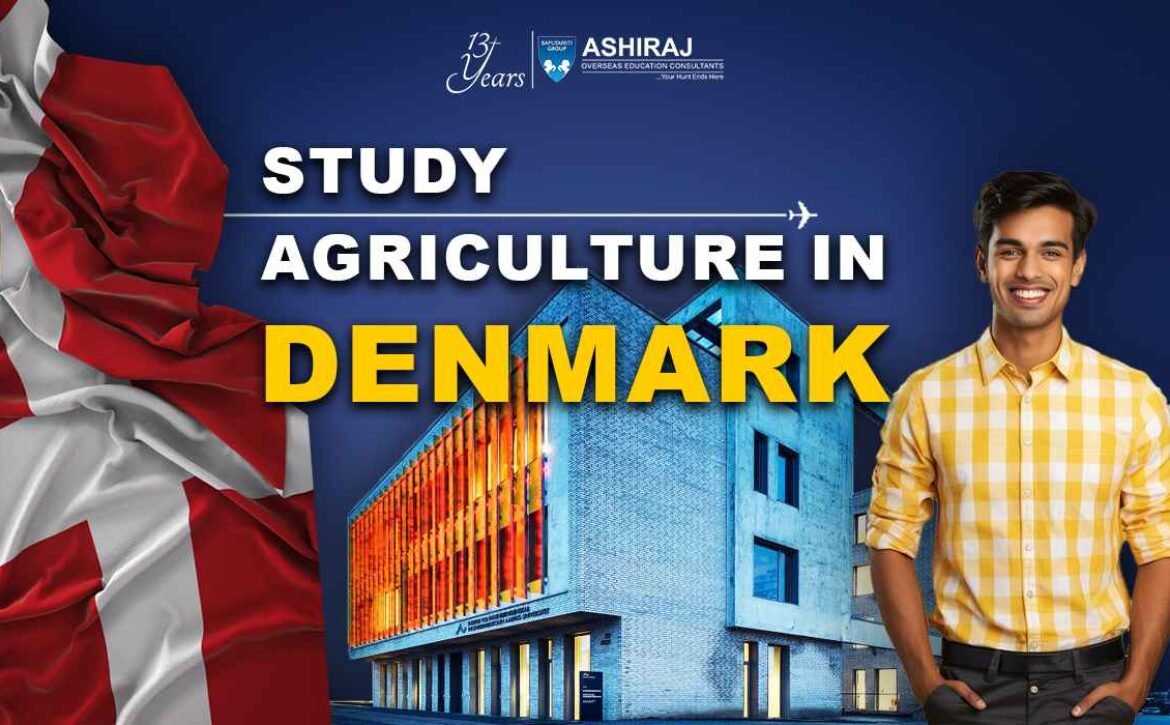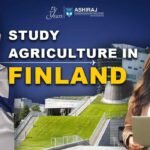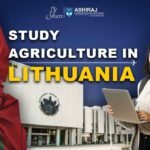
Agriculture in Denmark
Agriculture in Denmark thrives as a cornerstone of its economy and cultural heritage. Despite its relatively small size, Denmark boasts a robust agricultural sector characterized by advanced technology, sustainable practices, and high-quality produce. The country’s agricultural landscape encompasses a diverse range of activities, from dairy farming and crop cultivation to pig production and greenhouse horticulture. Denmark’s agricultural success is underpinned by its fertile soils, favorable climate, and proactive government policies that support innovation and environmental stewardship within the industry.
The agricultural sector in Denmark plays a pivotal role in both domestic and international markets, contributing significantly to the country’s GDP and employment. With a strong emphasis on organic farming and renewable energy integration, Denmark sets a global benchmark for sustainable agriculture practices. The nation’s commitment to technological advancement in agriculture ensures efficient production methods while maintaining stringent environmental standards. As Denmark continues to navigate challenges such as climate change and global market dynamics, its agriculture remains adaptive and resilient, securing its position as a key player in the global food industry.
Why to Study Agriculture in Denmark?
- Cutting-edge Research: Denmark is at the forefront of agricultural research and innovation, offering access to state-of-the-art facilities and expertise.
- Sustainable Practices: Learn from a country known for its sustainable agricultural practices, integrating technology with environmental stewardship.
- International Perspective: Gain a global perspective through Denmark’s international collaborations and exposure to diverse agricultural systems.
- Quality Education: Benefit from high-quality education programs taught in English, with a focus on practical skills and theoretical knowledge.
- Career Opportunities: Explore abundant career opportunities in agriculture, including roles in agribusiness, research institutions, and governmental organizations.
- Practical Learning: Engage in hands-on learning experiences through internships, fieldwork, and industry partnerships.
- Networking: Build a strong professional network with peers and experts in Denmark’s dynamic agricultural sector.
- Cultural Experience: Immerse yourself in Danish culture and lifestyle, enhancing your overall educational experience.
- Supportive Environment: Enjoy a supportive learning environment with small class sizes and personalized attention from faculty.
- Innovation Hub: Denmark fosters an entrepreneurial spirit in agriculture, encouraging students to explore new ideas and technologies.
Studying agriculture in Denmark offers not only academic excellence but also practical skills and a forward-thinking approach that prepares graduates for global challenges in the field.
Top Universities to Study Agriculture in Denmark
University | QS World University Ranking 2023 | Type of University | Average Annual Fees | Programs Offered |
University of Copenhagen | 76 | Public | Approx. DKK 0 (tuition-free for EU/EEA students) | Agricultural Sciences, Environmental Science, Biology |
Aarhus University | 91 | Public | Approx. DKK 75,000 | Agricultural Economics, Agroecology, Animal Science |
Technical University of Denmark | 112 | Public | Approx. DKK 60,000 | Food Science and Technology, Environmental Engineering |
Aalborg University | 239 | Public | Approx. DKK 60,000 | Sustainable Biotechnology, Urban, Energy and Environmental Planning |
Copenhagen Business School | 280 | Public | Approx. DKK 100,000 | Agribusiness Economics, Management in Agriculture and Food |
Studying agriculture in Denmark provides access to top-tier universities renowned for their academic excellence and research contributions. Here are the top universities in Denmark for agriculture based on QS World University Rankings 2023:
- University of Copenhagen: Ranked 76th globally, it offers programs in Agricultural Sciences and Environmental Science, tuition-free for EU/EEA students.
- Aarhus University: Ranked 91st globally, it provides programs in Agricultural Economics, Agroecology, and Animal Science with an approximate annual fee of DKK 75,000.
- Technical University of Denmark: Ranked 112th globally, offering programs like Food Science and Technology and Environmental Engineering, with an average annual fee of DKK 60,000.
- Aalborg University: Ranked 239th globally, specializing in Sustainable Biotechnology and Urban, Energy, and Environmental Planning, with similar tuition fees as DTU.
- Copenhagen Business School: Ranked 280th globally, it offers programs such as Agribusiness Economics and Management in Agriculture and Food, with an average annual fee of DKK 100,000.
These universities not only provide quality education but also foster innovation and practical skills necessary for a successful career in agriculture in Denmark and beyond.
Course Curriculum for Agriculture in Denmark
- Core Subjects: The curriculum covers foundational topics such as agronomy, agricultural economics, and animal science, emphasizing practical and theoretical knowledge.
- Sustainable Agriculture: Focuses on sustainable practices, including organic farming, environmental management, and resource-efficient production techniques.
- Technology Integration: Includes courses on precision agriculture, digital farming, and agricultural robotics to enhance productivity and sustainability.
- Research and Innovation: Encourages students to engage in research projects addressing current agricultural challenges, fostering innovation in crop management and livestock production.
- Internship Opportunities: Provides practical learning through internships on farms, in research institutions, or with agribusinesses, offering hands-on experience.
- Global Perspective: Integrates international perspectives through study tours, exchange programs, and collaboration with global agricultural networks.
- Business and Management: Offers modules on agribusiness management, marketing, and entrepreneurship to prepare students for diverse career paths in the agricultural sector.
- Environmental Stewardship: Emphasizes the importance of environmental sustainability and biodiversity conservation within agricultural practices.
Studying agriculture in Denmark equips students with a comprehensive understanding of modern agricultural practices, preparing them to address global food security challenges while promoting sustainable development.
Eligibility Criteria & Admission Requirements for MS in Agriculture in Denmark
- Language Proficiency: Applicants must demonstrate proficiency in English through standardized tests such as IELTS (minimum score of 6.5 overall, with no band less than 6.0) or TOEFL (minimum score of 83 iBT).
- Academic Qualifications: Candidates typically need a bachelor’s degree in agriculture, biological sciences, environmental sciences, or related fields from a recognized institution.
- Standardized Tests: Some programs may require GRE (Graduate Record Examination) scores (typically a minimum of 300 combined verbal and quantitative reasoning) or GMAT (Graduate Management Admission Test) scores (typically a minimum of 550).
- Passport & Student Visa: International students must possess a valid passport and obtain a student visa to study in Denmark. Visa requirements may include proof of admission, financial means, and health insurance.
- Academic Certificates: Transcripts and certificates from previous education levels must be submitted, demonstrating academic achievement and prerequisites for the chosen program.
- Work Experience: While not always mandatory, relevant work experience in agriculture or related fields can strengthen an applicant’s profile and may be beneficial for certain programs.
Table Format for Standardized Tests:
Test | Minimum Score |
IELTS | Overall 6.5, with no band less than 6.0 |
TOEFL | 83 iBT |
GRE | Minimum 300 combined verbal and quantitative reasoning |
GMAT | Minimum 550 |
These criteria ensure that prospective students are academically prepared and proficient in English to succeed in agricultural programs in Denmark, contributing to the vibrant academic and research community in the country.
Documents Required for Studying Agriculture in Denmark
- Passport: A valid passport ensures identity verification and nationality confirmation.
- Letters of Recommendation (LOR): Typically two LORs from academic or professional referees assess the applicant’s skills, academic performance, and suitability for the program.
- Statement of Purpose (SOP): A personal statement outlining the applicant’s academic background, career goals, and reasons for choosing the specific agricultural program in Denmark.
- Curriculum Vitae (CV): A comprehensive resume detailing educational qualifications, work experience, skills, and achievements relevant to the field of agriculture.
- Official High School Transcripts and Certificates: Documents confirming completion of secondary education, including grades and certificates.
- Work Experience Certificate: If applicable, a certificate verifying relevant work experience in agriculture or related fields.
- Proof of Financial Resources: Evidence demonstrating sufficient funds to cover tuition fees, living expenses, and other costs associated with studying in Denmark.
These documents collectively showcase the applicant’s academic background, skills, motivations, and financial capability, crucial for evaluating eligibility and making informed admissions decisions in Denmark’s agricultural institutions.
Admission Process for Agriculture in Denmark
- Research Programs: Explore universities offering agriculture-related courses in Denmark. Check their curriculum, faculty, and research opportunities.
- Check Eligibility: Ensure you meet the eligibility criteria, including academic qualifications, language proficiency (IELTS or TOEFL), and standardized test scores (GRE or GMAT if required).
- Prepare Documents: Gather required documents such as passport, academic transcripts, letters of recommendation (LORs), statement of purpose (SOP), curriculum vitae (CV), and proof of financial resources.
- Submit Application: Complete the online application form through the university’s official website. Upload all necessary documents and pay the application fee if applicable.
- Application Review: Universities review applications thoroughly, considering academic achievements, test scores, personal statement, and letters of recommendation.
- Interview (if required): Some programs may require an interview to assess your suitability for the course and clarify any aspects of your application.
- Receive Admission Decision: Await the university’s decision. Once accepted, you will receive an official offer letter outlining terms and conditions.
- Acceptance and Visa: Accept the offer by the specified deadline. International students must then apply for a student visa, providing necessary documents including the offer letter and proof of financial means.
Following these steps ensures a smooth admission process into agricultural programs in Denmark, setting the stage for a rewarding academic journey in a leading European destination for agricultural education and research.
“Education is the most powerful weapon which you can use to change the world.”
Nelson Mandela
Cost of Agriculture Course in Denmark
- Tuition Fees: Public universities in Denmark generally offer tuition-free education for EU/EEA students. Non-EU/EEA students may incur tuition fees, typically ranging from DKK 45,000 to DKK 120,000 per year, depending on the university and program.
- Living Expenses: Estimate approximately DKK 6,000 to DKK 10,000 per month for accommodation, food, transportation, and personal expenses.
- Health Insurance: Mandatory for all students, costs approximately DKK 1,500 to DKK 2,000 per year.
- Books and Supplies: Budget around DKK 2,000 to DKK 5,000 per year for books and study materials.
- Additional Costs: Include visa fees, residence permit fees (if applicable), and travel expenses.
- Scholarships and Financial Aid: Explore scholarships and grants offered by universities, Danish government, and external organizations to offset costs.
Understanding these costs helps in financial planning and ensures a smooth transition into studying agriculture in Denmark, renowned for its high-quality education and innovative research opportunities in the field.
Scholarships for Agriculture Courses in Denmark
Scholarship Name | Amount | Application Deadline | Eligibility Criteria |
Danish Government Scholarships | Full tuition fees + monthly stipend | Varies (typically March-April) | Non-EU/EEA students pursuing full-degree agricultural programs |
University of Copenhagen Scholarships | Partial tuition fees | Varies | International students based on academic merit |
DTU Scholarships | Partial tuition fees | Varies | International students pursuing agricultural engineering |
Aarhus University Scholarships | Partial tuition fees | Varies | Non-EU/EEA students based on academic excellence |
Erasmus Mundus Joint Master Degrees | Full/part tuition fees + living allowance | Varies | International students applying for specific joint master’s programs |
These scholarships provide financial support to international students pursuing agricultural studies in Denmark. Applicants should check individual scholarship details for specific eligibility criteria, application procedures, and deadlines. Securing a scholarship not only helps offset tuition costs but also enhances the academic experience by allowing students to focus on their studies and research in Denmark’s vibrant agricultural sector.
Career Opportunities After Agriculture in Denmark
Job Profile | Average Salary (DKK/year) | Description |
Agricultural Consultant | 400,000 – 600,000 | Advises farmers on crop management, soil health, and sustainable practices. |
Farm Manager | 350,000 – 500,000 | Oversees daily operations on farms, including crop production, livestock management, and staff supervision. |
Agricultural Engineer | 450,000 – 650,000 | Designs and implements machinery and technologies to optimize farming processes. |
Food Scientist | 500,000 – 700,000 | Researches food production techniques, ensures quality standards, and develops new products. |
Environmental Specialist | 450,000 – 600,000 | Focuses on sustainability practices, environmental impact assessments, and regulatory compliance. |
Career opportunities in agriculture in Denmark offer competitive salaries and opportunities for growth. These roles cater to various interests within the agricultural sector, from research and technology development to farm management and environmental sustainability. As Denmark continues to innovate in agriculture with a strong emphasis on sustainability and technology, professionals in these fields play a crucial role in shaping the future of food production and environmental stewardship.
Frequently Asked Questions About Agriculture in Denmark
Denmark offers advanced agricultural technology, sustainable practices, and a supportive educational environment, preparing students for global challenges in the field.
Yes, several scholarships are available, such as the Danish Government Scholarships and university-specific grants, helping to cover tuition and living expenses.
International students typically need to demonstrate proficiency in English through tests like IELTS or TOEFL, with specific score requirements varying by institution.
Graduates can pursue careers as agricultural consultants, farm managers, agricultural engineers, and food scientists, with competitive salaries and opportunities for growth.
Tuition fees vary but generally range from DKK 45,000 to DKK 120,000 per year, with additional costs for living expenses and health insurance.
The process involves researching programs, meeting eligibility criteria, submitting documents, and possibly attending an interview, followed by receiving an admission decision.
Yes, students can gain practical experience through internships, research projects, and collaborations with industry partners and research institutions.
Bachelor’s degrees typically take 3 years, while master’s degrees can range from 1.5 to 2 years, depending on the program and university.
Danish universities offer extensive research opportunities in areas such as sustainable agriculture, biotechnology, and environmental management, supported by state-of-the-art facilities.
Besides scholarships, students can explore part-time work opportunities, student loans, and financial aid options available through Danish universities and external organizations.




